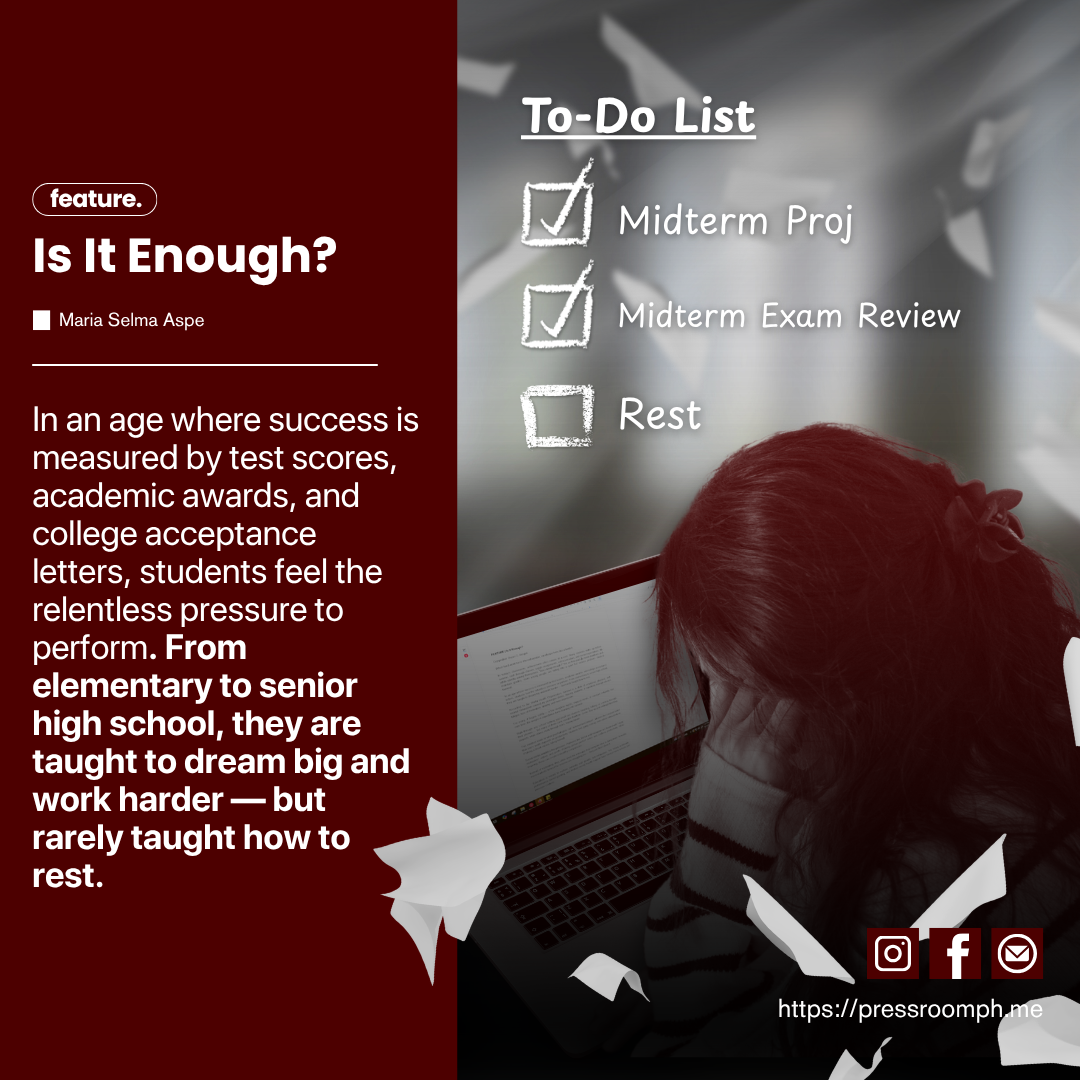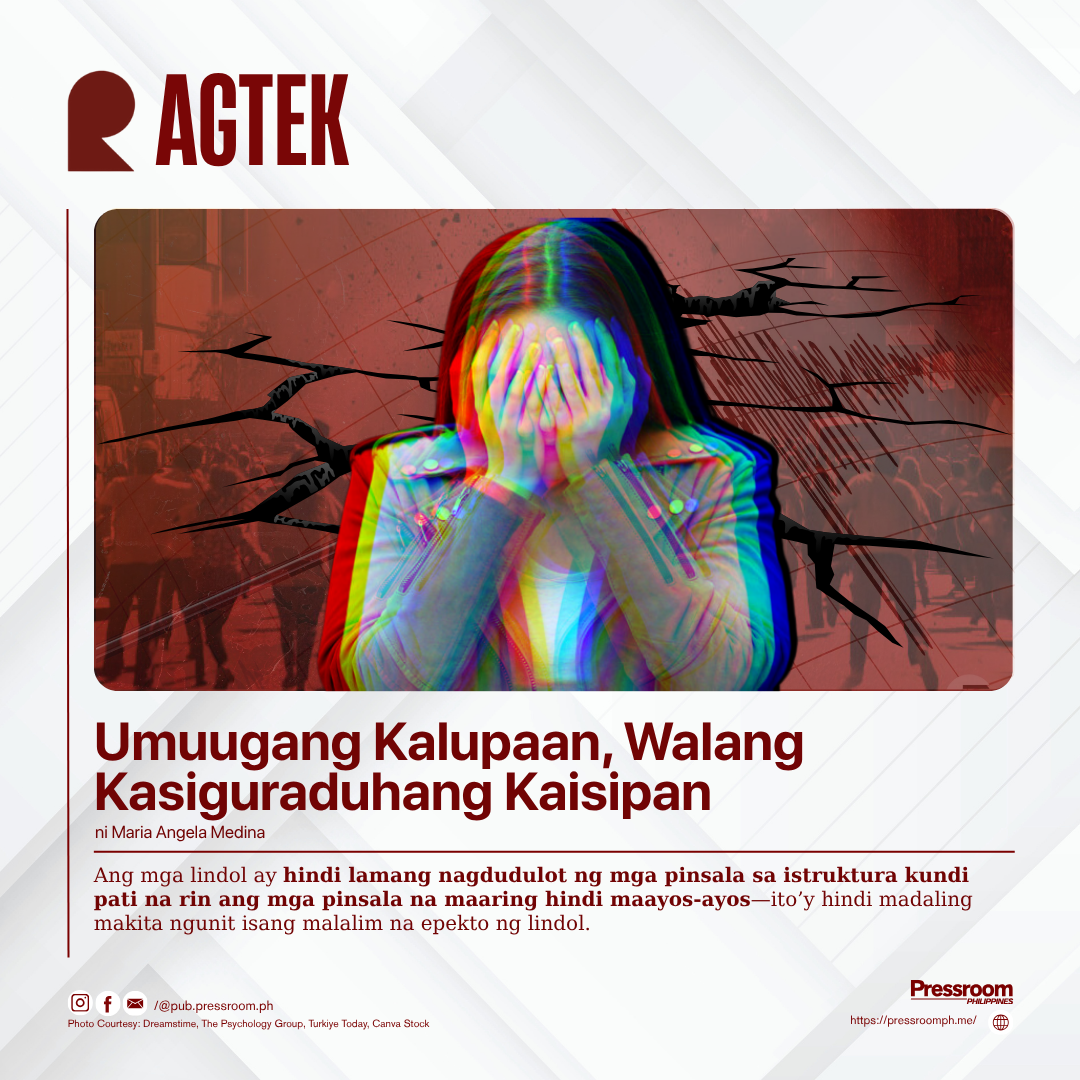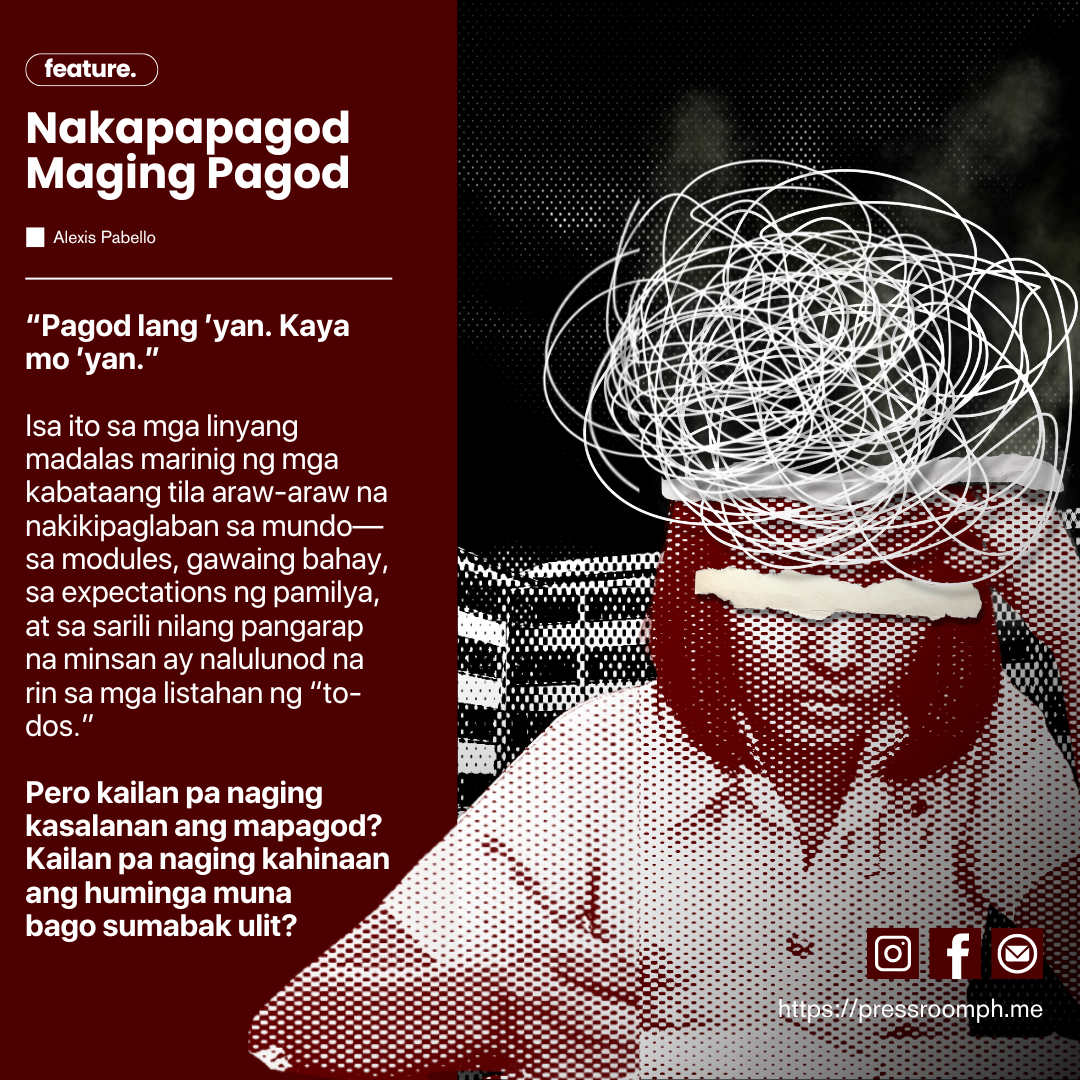When hard work turns into exhaustion, excellence feels like a burden.
In today’s classrooms, achievement often comes at a cost. Many students wake up before sunrise, rush through classes, juggle assignments, extracurriculars, and social expectations. All while silently asking themselves, “Am I doing enough?” Yet, as they push to meet deadlines and maintain grades, more young people are falling into a quiet but serious problem: student burnout.
In an age where success is measured by test scores, academic awards, and college acceptance letters, students feel the relentless pressure to perform. From elementary to senior high school, they are taught to dream big and work harder — but rarely taught how to rest.
According to the World Health Organization, burnout is a state of emotional, physical, and mental exhaustion caused by prolonged stress. Among students, it manifests through chronic fatigue, loss of motivation, anxiety, and even depression.
For many, it begins subtly — a few sleepless nights, skipped meals, or constant irritability. But over time, the weight of expectation turns learning into survival.
Walk through any school hallway and you’ll see students laughing, talking, or scrolling through their phones — but many of them carry invisible burdens. Some stay up until midnight finishing projects, while others study through tears, fearing failure.
This mindset leads to what psychologists call “achievement fatigue”, wherein the constant belief that one’s worth depends on productivity. Students feel guilty resting, even when exhausted, as if taking a break means falling behind.
Social media amplifies this pressure. Platforms like TikTok and Instagram are flooded with “study motivation” videos and posts showing picture-perfect notes and endless productivity. While inspiring, these can create unhealthy comparisons.
Instead of motivating, they often send the message that everyone else is doing more. In reality, most students behind the screens are struggling too — they just don’t show it.
Education is meant to nurture curiosity and growth, not exhaustion. Yet, heavy workloads, performance-based grading, and limited mental health support have turned many schools into pressure cookers.
Teachers and administrators, too, face their own challenges, making it hard to notice when students are quietly burning out. Some institutions have started mental health days or counseling programs, but for many, these remain out of reach or poorly implemented.
The truth is, rest is not laziness. Balance is not weakness. Students need to be reminded that learning includes living. Taking breaks, spending time with friends, or simply doing nothing are not signs of giving up — they’re acts of self-preservation.
Parents, teachers, and students themselves all play a role in changing this culture. Instead of asking “Is it enough?”, maybe the better question is, “Am I okay?”
Because sometimes, being “enough” doesn’t mean doing more — it means doing just what you can, with peace of mind intact.
As the school year continues, perhaps it’s time to redefine what success means. Grades and achievements matter, but so does mental health, rest, and happiness.
Every student deserves to learn without losing themselves in the process. After all, education should build a future — not burn it out.






